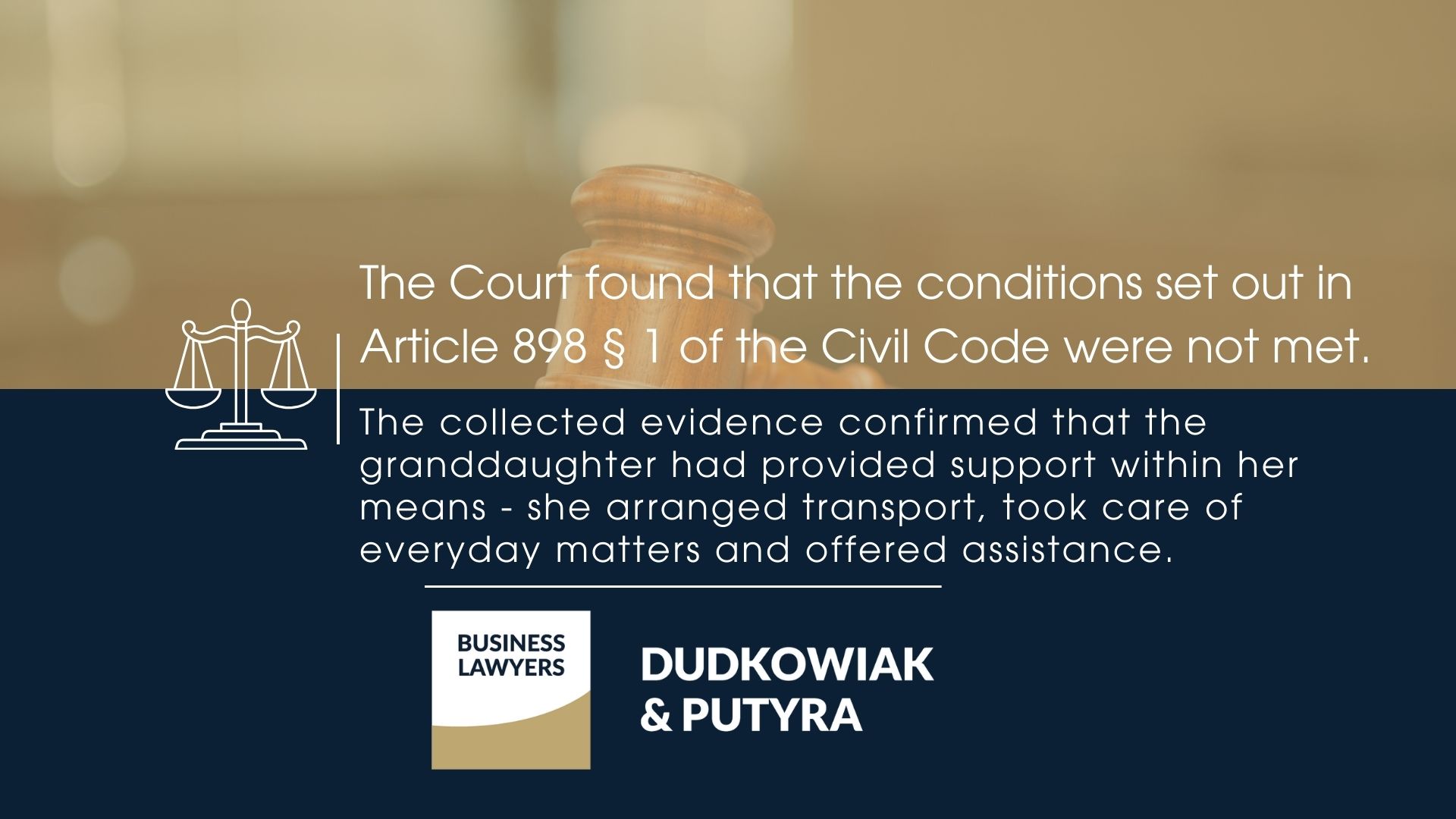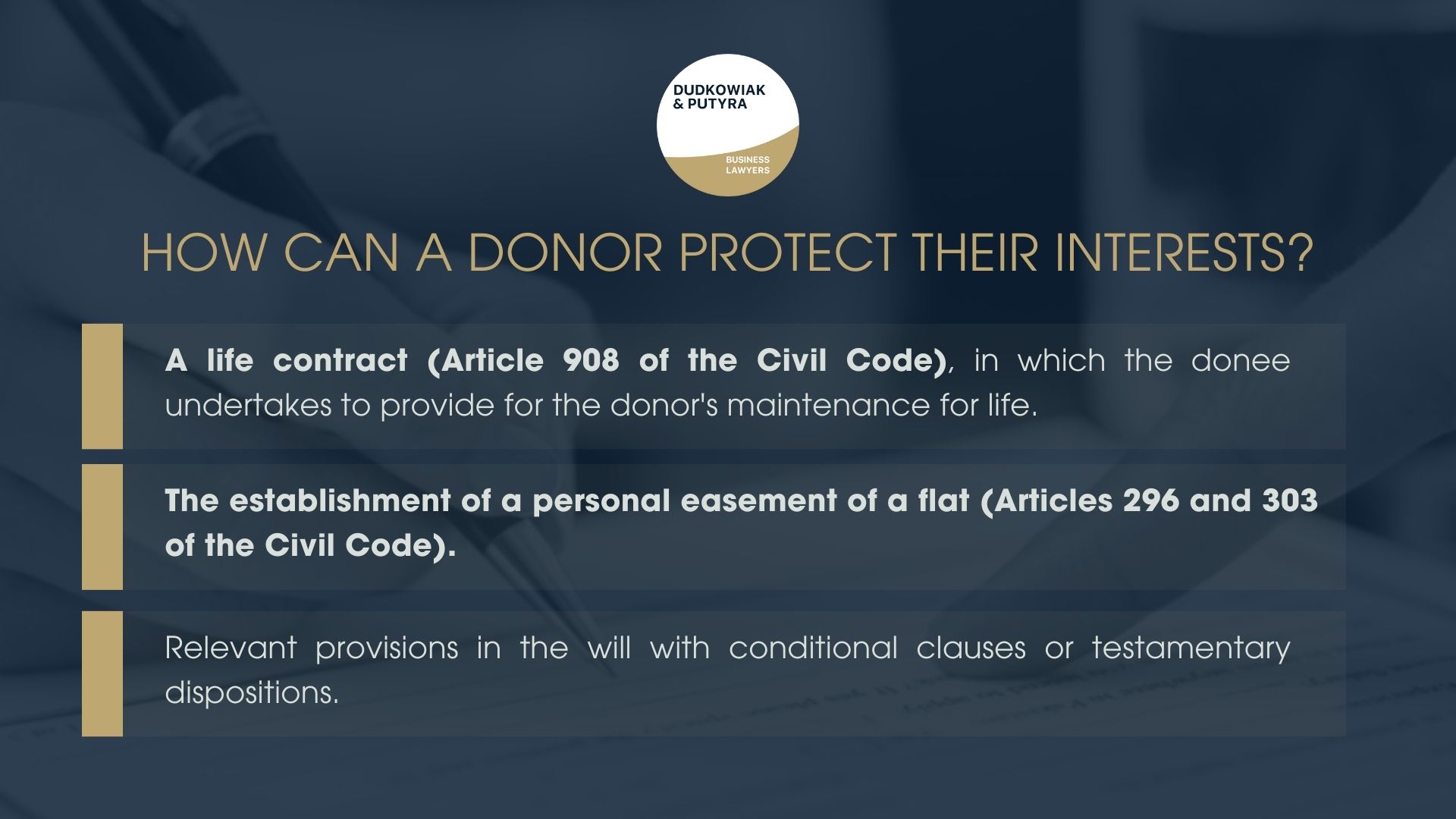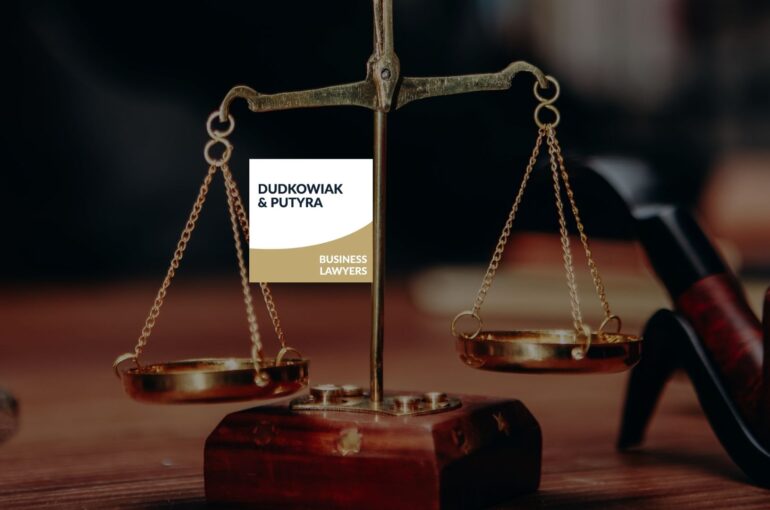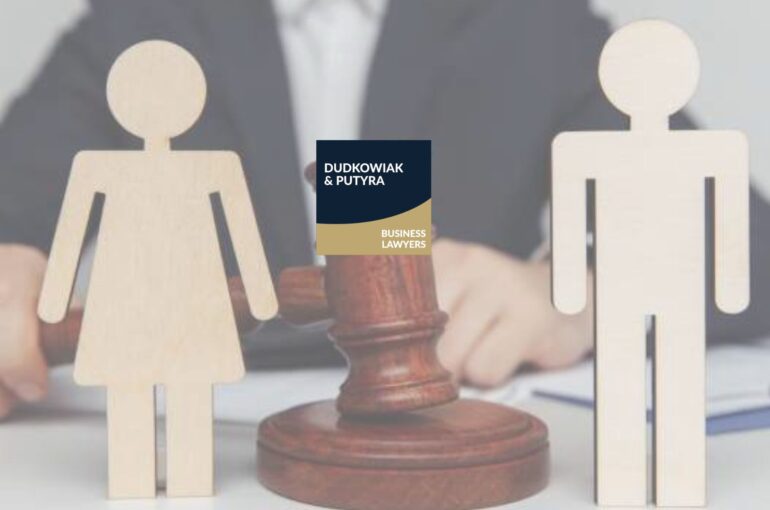Between gratitude and the law- when can a donation revert to the donor?
The Regional Court of Warsaw, in a judgment of 27 January 2025 (ref. I C 429/21), dismissed an action brought by the three daughters of the deceased Testator who sought to oblige the Testator’s granddaughter to make a declaration of intent to return the real estate donated to their mother.
Is neglect a sign of gross ingratitude?
The main basis of the claim was an allegation of gross ingratitude on the part of the recipient towards the donor. The dispute was over a flat in Warsaw, which the Testator had donated to her granddaughter, retaining the right to live in it. Nevertheless, due to her deteriorating health, the Testator revoked the donation, alleging that her granddaughter lacked assistance, both physically and financially. After her death, her daughters entered the case as testamentary heirs, maintaining the claim to revoke the donation.
Nevertheless, the Court found that the premise of gross ingratitude, as provided for in Article 898 § 1 of the Civil Code, was not met in the present case. The evidence gathered showed that the granddaughter- within the limits of her possibilities- provided assistance to her grandmother, organised transport, dealt with everyday matters and offered various forms of support.

The ruling of the Warsaw court dispels doubts
The refusal to take over round-the-clock care was not the result of ill will, but was due to objective circumstances such as work, childcare and housing difficulties. The court pointed out that family conflicts and the donor’s dissatisfaction with the extent of the assistance provided were not sufficient to be considered a manifestation of qualified ingratitude.
The explanatory memorandum refers to the uniform case law of the Supreme Court, according to which gross ingratitude is behaviour of the recipient characterised by ill will, which violates the basic principles of loyalty and gratitude towards the donor. By contrast, it does not cover disputes, differences in expectations or ordinary family conflicts, even if they lead to the severance of contacts.
Donations and liabilities? What the law says
The key fact seems to be that a donation- as a gratuitous benefit- does not impose an obligation on the recipient to provide reciprocal services. However, in family relationships, a tacit expectation of assistance or care is often assumed, especially when the giftee and the donor have a close relationship.
Despite this, Polish law does not impose a formal duty of care on the donor, unless such an obligation arises from separate legislation (e.g. on alimony) or is expressly included in the wording of the agreement. Significantly, a donor who has performed an obligation under a donation agreement may demand the fulfilment of the instruction unless it is solely for the benefit of the donee.
How can you protect your interests as a donor?
Pursuant to Article 898 § 1 of the Civil Code, a donor may revoke a donation already made if the donee has been grossly ungrateful to the donor. This provision is applicable only in exceptional situations- there must be a deliberate, ill-willed, unequivocally negative act or omission of the donee, harming the donor. The Supreme Court points out that these behaviours must not only be morally reprehensible, but also perceived as a drastic violation of the rules of social co-existence.
If the donor wants to secure his or her future, he or she can – instead of a donation – consider other legal instruments such as:
- A life contract (Article 908 of the Civil Code), in which the donee undertakes to provide for the donor’s maintenance for life.
- the establishment of a personal easement of a flat (Articles 296 and 303 of the Civil Code).
- relevant provisions in the will with conditional clauses or testamentary dispositions.
The case described here is an example of how emotional and complex family donation matters can be. For the parties to such disputes, it is not only a matter of property rights, but also of disappointments and expectations of care and mutual support. From a legal point of view, a mere subjective feeling by the donor that he or she has been abandoned or let down is not enough- it is necessary to show that the recipient of the gift has engaged in behaviour that is blatantly contrary to the principles of social co-existence.

Are you considering transferring your assets to your relatives?
Being able to regulate mutual obligations precisely in the contract, to safeguard one’s own needs for the future and to make the parties’ intentions clear can prevent disputes in the future, which, as in the present case, can drag on for years.
Contact our team of experts– we will advise you on the right solutions for your business.


